There Is Basically No Science Behind Potty Training Experts' Advice
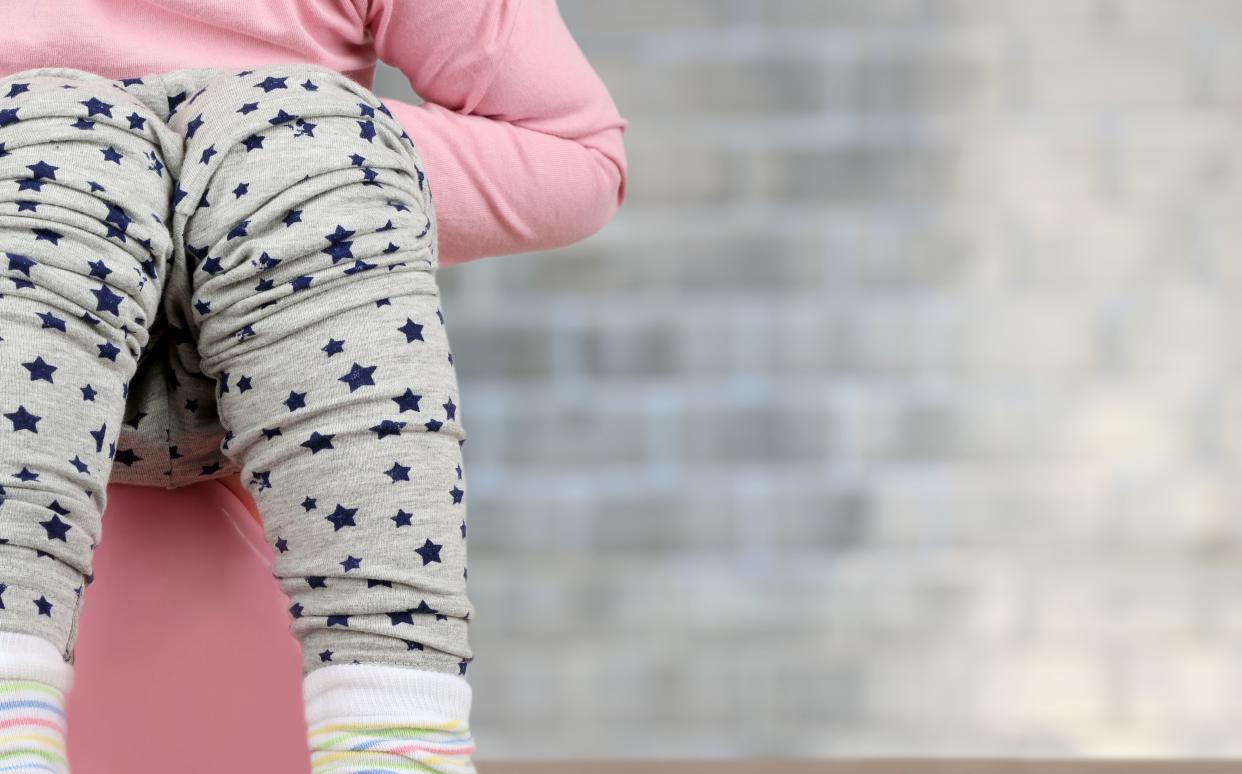
My husband and I recently decided it was time to teach our toddler to use the toilet. He’s in preschool, surrounded by other kids doing it, and had expressed some interest. I’m also expecting our second baby soon and no part of me relishes the prospect of changing an infant and an obstinate 35-pound human simultaneously.
As a health reporter with zero experience on the process, I decided to start with the research. There is a hell of a lot of decisive advice out there — including the one book I bought and immediately trashed after reading we’d missed the “magic” age window (incidentally, a completely different age than what our son’s pediatrician suggested). But I was genuinely surprised there were virtually no studies on the subject. A search on PubMed, the engine of choice for scientific papers, revealed only a handful of credible potty training studies over the last decade.
And when you consider that breaking free of the diaper is one of the major rites of childhood and often a source of stress for confused parents, the dearth of research is, frankly, bananas.
Of course most kids do figure it out eventually. But real problems can and do crop up, like constipation and chronic accidents. And given how assertive a lot of the self-appointed “experts” are on this topic, it’s not unreasonable to expect at least some recent research backing up their dogma. Major medical groups try to sell potty training as “charming” and “fun!” — but even they lean heavily on approaches that haven’t been studied all that much.
“It seems like everyone has a take on it and it’s something that’s definitely written a ton about, but not something that we can say, ‘Statistically, when you do it this way it happens faster or when you do it that way it happens slower,’” Dr. Corinn Cross, a spokesperson for the American Academy of Pediatrics, told HuffPost. “I haven’t read a lot research on it.”
In the last 50 years, two approaches have come to dominate toilet training: child-led and parent-led, which are both basically what they sound like.
The child-led approach was popularized in the 1960s by the recently deceased pediatrician Dr. T. Berry Brazelton, based on observing his patients’ charts over the years. He recommended waiting until kids were at least 18 months, then sloooowly warming them to the idea of the potty. That means asking them to sit on it fully clothed, then eventually working up to removing the diaper for short intervals and switching to training pants. (Skeptics of Brazelton’s methods are quick to note he shilled for Pampers size 6 diapers, i.e. the big ones for toddlers over 35 pounds.)
But as a 2008 review in American Family Physician review points out, few studies have actually tested the method. One that included 500 kids found more than half were “continent” by age 3 and 98 percent were by the time they had turned 4 — but it didn’t offer any information on how long the whole process took.
Then there’s the more parent-oriented, rapid-fire approach popularized by psychologists Nathan Azrin and Richard Foxx in the 1970s, which basically involves ditching the diapers, giving a toddler lots of fluids, prompting them to use the potty a lot and rewarding them when they do. It’s the basis for the many versions of train-your-toddler-in-three-days plans that abound these days.
So which one is better? Only one study tried to compare the boot camp approach with child-led schemes and, A, it basically found no difference and, B, was conducted 50 years ago. A decade ago, researchers called for more studies comparing the two methods, but that hasn’t happened.
“It’s so parent-driven,” Cross said by way of explaining the lack of research. “Really as a pediatrician what I try and do is find the right fit for that family. I don’t necessarily try and recommend the same way of potty training for every kid.”
“There’s so many different ways to do it, and people don’t like to research things they can’t control,” she added. “There’s such a variable as to how parents implement it, that it’s very hard to quantify what they’re doing.”
Similarly, there isn’t a lot of good information about the right age to start potty training. In the 1930s, the U.S. government published a guide suggesting that babies should be toilet trained by 6 or 8 months — an insane benchmark for most modern parents. Research suggests the average age at which kids are potty trained increased from 2 years in the 1950s to 3 years in the 1990s — partly because researchers got a better grasp on toddler psychology. And again, partly because diapers got bigger and better — and have become a multibillion-dollar industry that shows no sign of slowing down.
These days, parents and doctors generally line up in their belief that somewhere between 2 and 3 years is the right time to ditch the diapers. Indeed, the American Academy of Pediatrics — which tends to encourage a more child-led approach, but generally does not offer up specific guidance for potty training — now says that starting before 2 years is not recommended.
But as any parent knows, the difference between a 2-year-old and a 3-year-old can be profound, and there are no robust investigations comparing outcomes among kiddos within that 12-month span. Is there some kind of magic window nestled in there when most are physically and emotionally capable of potty training, but not too set in their ways? Who the hell knows!
I’m not going to share how things have been going for my own kid, because I think he’d be justifiably horrified to know I blabbed about it on the internet. Also — we’re in the thick of it now, and I still have absolutely no answers. Here’s the thing, though: Anyone who says they do is peddling an opinion, not a science-backed answer.
Also on HuffPost

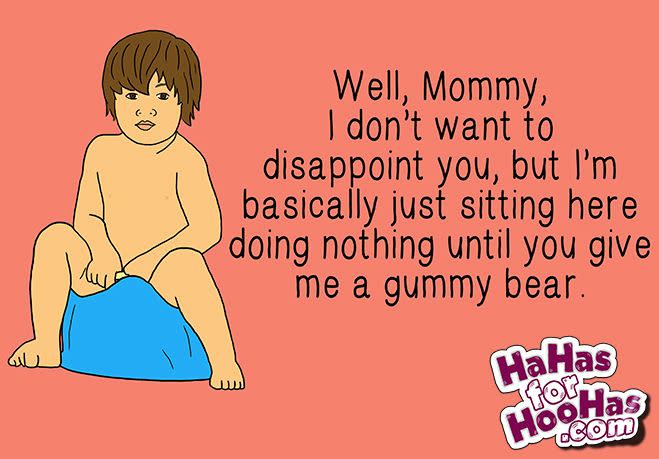
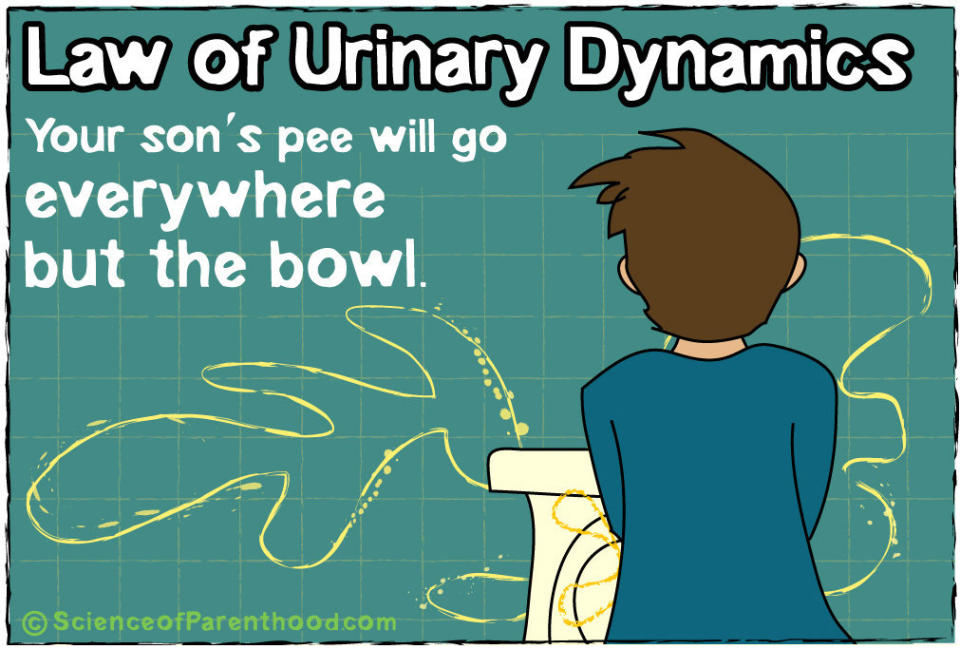
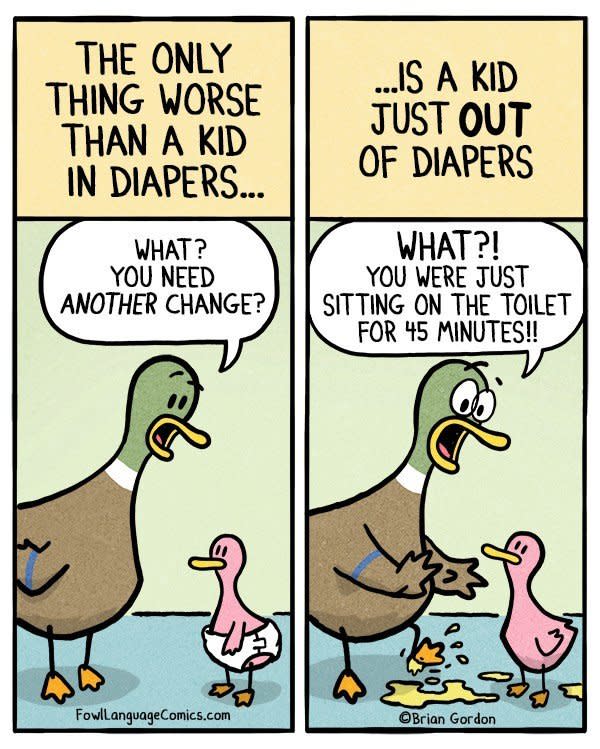


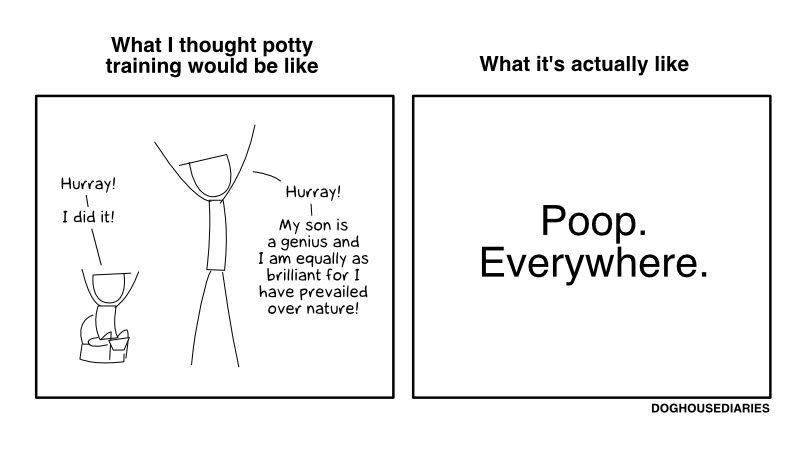

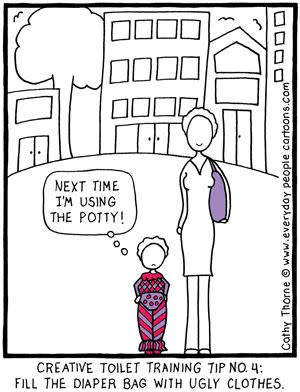
Love HuffPost? Become a founding member of HuffPost Plus today.
This article originally appeared on HuffPost.

